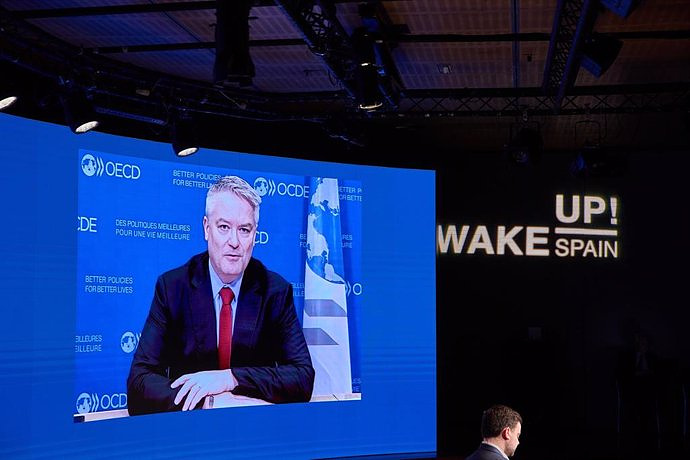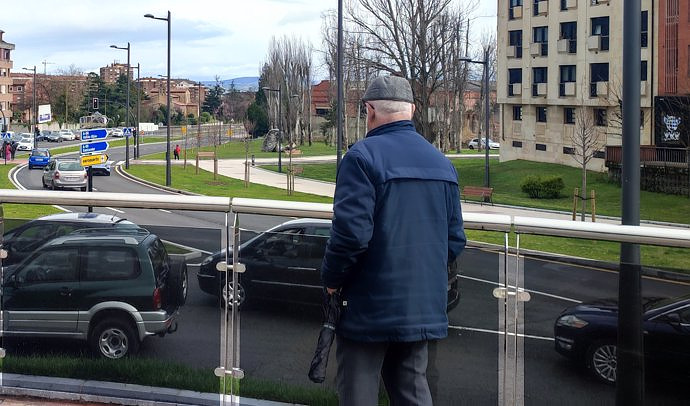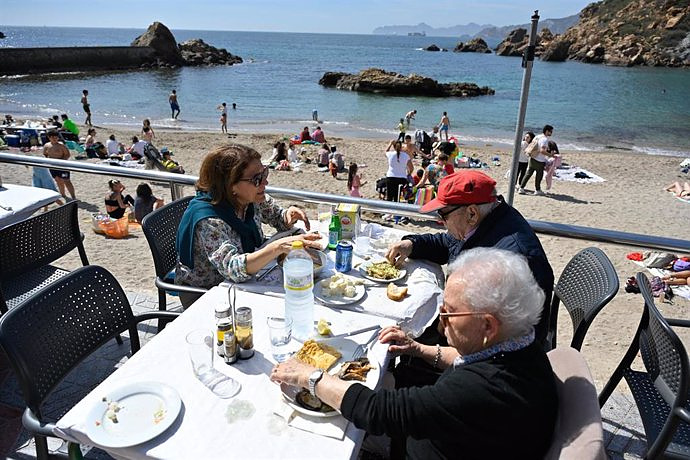SEVILLA, 30 Sep. (EUROPA PRESS) -
The Minister of Agriculture, Fisheries and Food, Luis Planas, has considered this Friday "an unfortunate incident" that the American Justice has ruled in favor of the United States Department of Commerce maintaining the tariffs on Spanish black olives, although he has assured that this "will be overcome", since, although it is "a new psychological blow, in practice, the situation remains the same".
In an interview on Canal Sur Radio, collected by Europa Press, the minister has put this new resolution that affects the Spanish table olive sector into context. Thus, he has explained that the World Trade Organization (WTO) won the open conflict over the tariffs imposed by the US, which acquiesced and, therefore, must modify its internal legislation, but "it has time to do so".
"It has been at this time when the American court has issued this resolution agreeing with the US", which it has considered "a little strange", but, in practice, the situation remains the same until the US reviews its internal legislation, period in which the North American country has been convinced is going to carry out. "He has committed himself and we believe in it," he assured.
In line with this issue, he stated that "the important thing" is that "our producers can recover ground in the North American market" and, in this sense, the central Executive will hold a meeting next week with the European Union to continue "pressing and settle this issue that has been in circulation for four years".
This ruling, which was issued on September 23, is the third issued by the US Court of International Trade (CIT) and is already the final one in this instance. This tariff, which has its origin in the subsidies of the Common Agricultural Policy (CAP) to farmers and represents 15 points of the total initial tariff of 35%.

 Exploring Cardano: Inner Workings and Advantages of this Cryptocurrency
Exploring Cardano: Inner Workings and Advantages of this Cryptocurrency Seville.- Economy.- Innova.- STSA inaugurates its new painting and sealing hangar in San Pablo, for 18 million
Seville.- Economy.- Innova.- STSA inaugurates its new painting and sealing hangar in San Pablo, for 18 million Innova.- More than 300 volunteers join the Andalucía Compromiso Digital network in one month to facilitate access to ICT
Innova.- More than 300 volunteers join the Andalucía Compromiso Digital network in one month to facilitate access to ICT Innova.-AMP.- Ayesa acquires 51% of Sadiel, which will create new technological engineering products and expand markets
Innova.-AMP.- Ayesa acquires 51% of Sadiel, which will create new technological engineering products and expand markets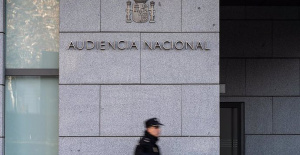 The Prosecutor's Office requests that the AN investigate the detainee for terrorism for damaging an ax in a McDonalds in Badalona
The Prosecutor's Office requests that the AN investigate the detainee for terrorism for damaging an ax in a McDonalds in Badalona Balearic PSOE denounces the director of IbSalut for prevarication for renouncing the mask claim file
Balearic PSOE denounces the director of IbSalut for prevarication for renouncing the mask claim file Otxandiano reproaches that PSOE "has lent itself" to taking out ETA in the campaign, like the extreme right against Sánchez
Otxandiano reproaches that PSOE "has lent itself" to taking out ETA in the campaign, like the extreme right against Sánchez Puigdemont claims to have a "well grasp" of the State and asks to "be respected" to obtain more transfers
Puigdemont claims to have a "well grasp" of the State and asks to "be respected" to obtain more transfers How Blockchain in being used to shape the future
How Blockchain in being used to shape the future Not just BTC and ETH: Here Are Some More Interesting Coins Worth Focusing on
Not just BTC and ETH: Here Are Some More Interesting Coins Worth Focusing on Valencia displays its "innovative and technological potential" at the Emerge Americas event in Miami
Valencia displays its "innovative and technological potential" at the Emerge Americas event in Miami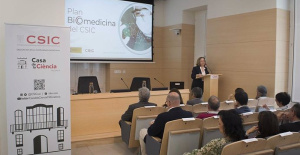 The CSIC incorporates the challenges of robotics, nanotechnology and AI in the new strategic plan for biomedicine
The CSIC incorporates the challenges of robotics, nanotechnology and AI in the new strategic plan for biomedicine Innovation allocates 9.1 million to train 74,000 people and guarantee digital inclusion
Innovation allocates 9.1 million to train 74,000 people and guarantee digital inclusion LIFE SPOT manages to develop new green treatments that eliminate groundwater contamination
LIFE SPOT manages to develop new green treatments that eliminate groundwater contamination A million people demonstrate in France against Macron's pension reform
A million people demonstrate in France against Macron's pension reform Russia launches several missiles against "critical infrastructure" in the city of Zaporizhia
Russia launches several missiles against "critical infrastructure" in the city of Zaporizhia A "procession" remembers the dead of the Calabria shipwreck as bodies continue to wash up on the shore
A "procession" remembers the dead of the Calabria shipwreck as bodies continue to wash up on the shore Prison sentences handed down for three prominent Hong Kong pro-democracy activists
Prison sentences handed down for three prominent Hong Kong pro-democracy activists ETH continues to leave trading platforms, Ethereum balance on exchanges lowest in 3 years
ETH continues to leave trading platforms, Ethereum balance on exchanges lowest in 3 years Investors invest $450 million in Consensys, Ethereum incubator now valued at $7 billion
Investors invest $450 million in Consensys, Ethereum incubator now valued at $7 billion Alchemy Integrates Ethereum L2 Product Starknet to Enhance Web3 Scalability at a Price 100x Lower Than L1 Fees
Alchemy Integrates Ethereum L2 Product Starknet to Enhance Web3 Scalability at a Price 100x Lower Than L1 Fees Mining Report: Bitcoin's Electricity Consumption Declines by 25% in Q1 2022
Mining Report: Bitcoin's Electricity Consumption Declines by 25% in Q1 2022 Oil-to-Bitcoin Mining Firm Crusoe Energy Systems Raised $505 Million
Oil-to-Bitcoin Mining Firm Crusoe Energy Systems Raised $505 Million Microbt reveals the latest Bitcoin mining rigs -- Machines produce up to 126 TH/s with custom 5nm chip design
Microbt reveals the latest Bitcoin mining rigs -- Machines produce up to 126 TH/s with custom 5nm chip design Bitcoin's Mining Difficulty Hits a Lifetime High, With More Than 90% of BTC Supply Issued
Bitcoin's Mining Difficulty Hits a Lifetime High, With More Than 90% of BTC Supply Issued The Biggest Movers are Near, EOS, and RUNE during Friday's Selloff
The Biggest Movers are Near, EOS, and RUNE during Friday's Selloff Global Markets Spooked by a Hawkish Fed and Covid, Stocks and Crypto Gain After Musk Buys Twitter
Global Markets Spooked by a Hawkish Fed and Covid, Stocks and Crypto Gain After Musk Buys Twitter Bitso to offset carbon emissions from the Trading Platform's ERC20, ETH, and BTC Transactions
Bitso to offset carbon emissions from the Trading Platform's ERC20, ETH, and BTC Transactions Draftkings Announces 2022 College Hoops NFT Selection for March Madness
Draftkings Announces 2022 College Hoops NFT Selection for March Madness




